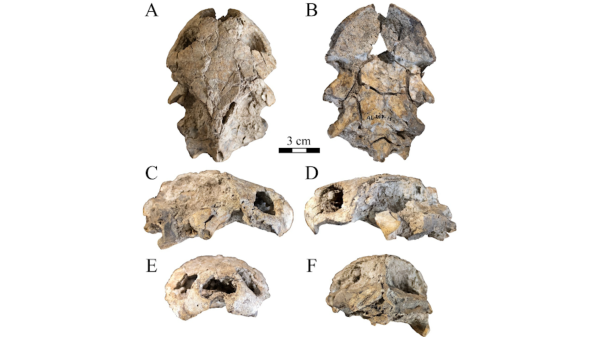Study: Beliefs about the afterlife affect sustainability practices

Image courtesy of Jacob Tabo/Unsplash.
What people believe happens after death guides how they think about the Earth and how they behave, including whether they choose to recycle or buy energy-efficient appliances, a new study shows.
Research from Arizona State University and the University of Wyoming has found that religious beliefs about the afterlife predicted how people value and practice sustainability. The study was recently published in Psychology of Religion and Spirituality.
“The importance of sustainability is gaining recognition worldwide, with people of all religions focused on making sure how we use resources is sustainable, that we are good stewards of the Earth,” said Kathryn Johnson, associate research professor of psychology. “We found the level of investment in sustainable behaviors was partly predicted by afterlife beliefs: If people believe in reincarnation, they were more invested in sustainability and stewardship.”
Independence versus interdependence
The research team of Johnson, Elizabeth Minton of the University of Wyoming and recent ASU graduate Madeline Parde McClernon first conducted in-depth interviews with a group of participants. The group was made up of people of different religions, including Christianity, Islam, Hinduism, Buddhism, Judaism and Sikhism.
“What has been lacking in so much of the previous research is examining people of all these different faith backgrounds in one study – most prior research looks at one, maybe two different faiths, thereby limiting our understanding as to how faith more holistically influences sustainability behaviors,” Minton said.
Interview responses were categorized based on how sustainability was defined and also based on religious beliefs about the relationship between people and the Earth. Religious beliefs did not affect the definition of sustainability — all participants defined it as preserving natural resources for the future — but they did affect why people chose to implement sustainable practices.
Christians, Muslims and Jews indicated that they thought of sustainability as a way to achieve personal independence, especially financial independence. The responses from Buddhists and Hindus emphasized the interconnections between people and the Earth.
“The independence-interdependence distinction is something that has the potential to change the way that sustainable practices are promoted by policymakers, nonprofits and marketers of sustainable products,” Minton said.
The impact of the afterlife
The research team also examined how religious beliefs about what happens after death affected sustainable practices in daily life, an idea that came from McClernon.
“Madeline wondered whether people who believed in reincarnation, who believe that they would return to the Earth after death, would be more invested in the idea that the Earth needs to be a good place to return to. This idea ended up being the foundation of her senior honor’s thesis and of these experiments,” Johnson said.
Two groups participated in this experiment. One was made of people living in the U.S. and the other of people living in India.
Belief in reincarnation predicted behaviors like preserving water, volunteering for organizations that promote sustainability, or choosing to buy energy-efficient appliances. Belief in heaven was related to fewer sustainable practices and less general concern for the environment.
“Our results show that if a person believes in reincarnation, as opposed to believing they will leave Earth after death, they are a lot more invested in making sure the Earth is a good place to come back to,” Johnson said.
Despite differences in religious beliefs, the study participants had one thing in common: Many cited personal benefits of sustainability practices.
“We were surprised that, regardless of religious beliefs, people indicated they engaged in sustainability practices because it benefitted them in some way,” Johnson said. “This finding suggests that communicating the personal benefits of sustainability could be used to increase environmentally friendly practices.”
This work was funded by a grant from Barrett, The Honors College at Arizona State University and from the Sustainable Business Practices fund at the University of Wyoming.
More Science and technology

New research by ASU paleoanthropologists: 2 ancient human ancestors were neighbors
In 2009, scientists found eight bones from the foot of an ancient human ancestor within layers of million-year-old sediment in…

When facts aren’t enough
In the age of viral headlines and endless scrolling, misinformation travels faster than the truth. Even careful readers can be…

Scientists discover new turtle that lived alongside 'Lucy' species
Shell pieces and a rare skull of a 3-million-year-old freshwater turtle are providing scientists at Arizona State University with…